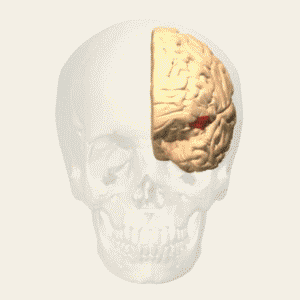 |
| from BodyParts3D, copyrighted by The Database Center for Life Science licensed under CC Attribution Share-Alike 2.1 Japan |
There are no poetic words, and no non-poetic words. It's the way, the manner, and in the context in which words are used that render them poetic. The ugliest-meaning word can be poetic when used to effect. The ugliest-sounding word also has its place, due in part to the reaction created by the harsh sounds. The words with the most banal meanings can be exquisite when used outside of a banal context. Broadmann Area 47 just by itself sounds lovely to me (put a number on anything and you've got my attention) but it could be made meaningful and poetic to a general audience when used by a good poet.
Which is to say that words need be neither mellifluous nor with unequivocally positive associations to be in a poem, but they need to be evocative.
These days traditionally "poetic" words--light and dark and longing and absence (all of which are topics of mine)--are banal themselves, rendered unpoetic through overuse. Fresh language and new imagery, that's where the poetry is--right there in Broadmann Area 47, which is not only responsible for organizing sound, but also for the processing of syntax in language. So ironically, if you want poetry, Broadmann Area 47 is not only among the right words to use, it's one of the places in your brain that you'll be using them. Bring your galoshes.
No comments:
Post a Comment